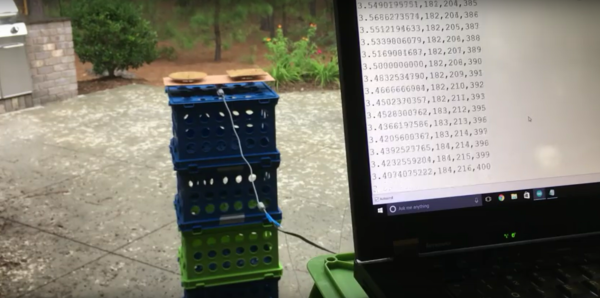Whenever it rains, people generally don’t look too closely at what the drops do exactly when they hit a surface. We generally assume that stuff will get wet and depending on the slope of the surface it’ll run off downhill at some point, probably in a nice, neat flow. Of course, reality doesn’t work that way, as Swiss researchers recently found when they pointed high-speed cameras at simulated raindrops. Their findings were published recently in Applied Physical Sciences, which is sadly paywalled, but the summary article over at phys.org provides some details, including a video.
The researchers set up a 1.2 meter long dry silicate sand surface with a 30° slope on which the drops were released. In the top image you can see two stills of the result, with the full video showing the drops turning into either peanut- or doughnut-shaped forms that gathered significant amounts of sand grains. These grains mix with the water, allowing a single drop to erode significant amounts of material from a slope, more than was previously assumed in existing soil erosion models.
Beyond erosion, these findings also offer insights for similar dynamics in other fields, all thanks to a group of researchers who got curious during a rainy walk and decided to take a closer look.












